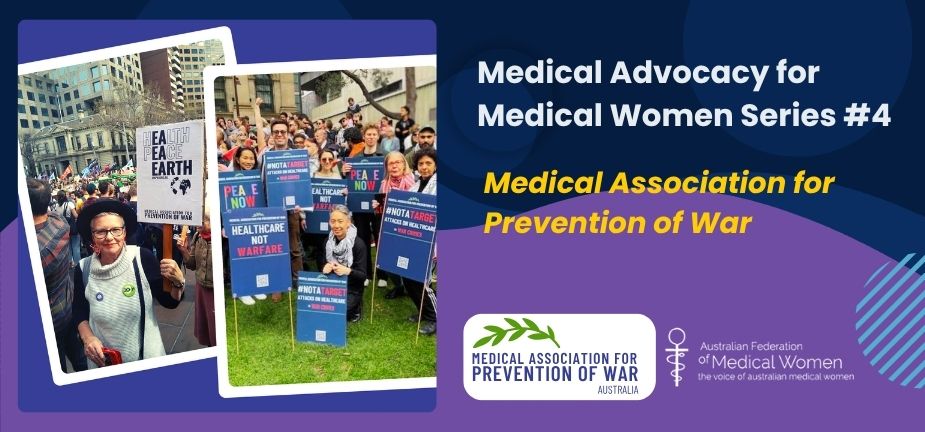In this Neos Kosmos article, A/Prof Magdalena Simonis AM explains how one can overcome the stigma related to mental health and how to access the right support in a time of crisis.
This is the second in a six-part series on mental health (see Part 1 here). Check out the tips for maintaining good mental health, and please share the resources. There is good advice on how to avoid Burnout, from her previous article too.
Women’s Mental Health – Part 2 [NEOS KOSMOS]
[18 April 2024]
This is the second in a six-part series on mental health and this issue, looks at how some issues are unique to women. Women face different health challenges and social pressures. Medical research has only recently started looking at health through a gender lens and when applied to mental health, inevitably some biological differences play a role, but these are not the only factors at play.
Society has placed certain expectations on women which influence women’s role in society, the most obvious one places women in roles as ‘carers’, even if they don’t choose to have children of their own. Decisions around education, work, career progression are influenced by conscious and unconscious biases we all possess around what women should and can do.
We will talk about the role of hormones in mental health, and how the burden of chronic pain results in poorer mental health in women due to lack of timely, affordable access to services. Sadly, one of the most important psychosocial risk factors for mental disorders in women is intimate partner violence, also known as domestic violence or gender-based violence. Up to fifty per cent of women with difficult to treat chronic depression, have been or are victims of intimate partner violence and carry deep trauma they avoid talking about.
Common facts about mental health in women
· Mental health in women is affected by social, psychological and hormonal factors.
· Depression, all forms of anxiety and post traumatic disorder are more common in women than men.
· Around 1 in 6 women will experience depression.
· Up to 1 in 10 women experience depression in pregnancy.
· Up to 1 in 6 women experience depression up to one year after giving birth.
· Women are more likely to experience situations that trigger depression such as pregnancy, birth, relationship difficulties.
· Women are more likely to have an eating disorder – be it overeating or undereating (men are more likely to have alcohol or substance abuse).
Women’s mental health: the social, psychological and hormonal
Although women and men experience similar mental health issues, the frequency of these varies significantly.
Women’s mental health will be looked at according to these categories:
· Women as carers
· Chronic pain
· Violence against women
· Pre-menstrual dysphoric disorder (PMDD)
· Pregnancy and postnatal depression
· Perimenopause and the menopause
Women as carers
More than 2 in 3 women are the main carers for children, parents and partners. Being a carer is a long-term responsibility which can impact a woman’s physical and mental health and often means they have fewer opportunities to reach their full potential to earn well, resulting in poverty in later life. Looking after family and loved ones who need help, takes women away from their work, friends, and special interests. I often find that women are the ones that book appointments for their children, parents, partners and even friends. Their own health needs often come last, as women put off going to the doctor for themselves, especially when money is tight.
Chronic pain
Chronic pain affects a higher proportion of girls and women than men around the world due for several biological reasons such as heavy periods, inflammatory conditions including endometriosis and autoimmune diseases women are more prone to. Women are also more likely to put off seeking treatment, sometimes for many years until they present with issues such as infertility or chronic abdominal pain due to adhesions from endometriosis, where one in nine women suffer for around eight years before being diagnosed and treated.
Years of living with pain disrupts life, which leads to mood disturbance such as anxiety and depression, especially if symptoms are misdiagnosed or the pain is minimised.
Violence against women
One of the most important psychosocial risk factors for mental disorders in women, is gender-based violence. Violence against women is common and around one in five will have experienced violence, usually from an intimate male partner.
Violence is not only in the form of being hit, slapped, pushed or kicked; violence can also be expressed as coercive control – it’s like living in a pressure cooker where everything you do is monitored and judged, and you are put down for everything you do. Nothing is ever good enough. Over the years, women who live in these situations lose their confidence, and learn to just keep quiet, living in fear of an explosive eruption at home.
As a general practitioner, when a woman presents with chronic depression, or headaches and pain that don’t respond to treatment as expected, around fifty per cent will disclose they have experienced violence when asked directly. Revealing this secret to their trusted GP plays a very important part in the process of addressing chronic pain and depression, even though the life circumstances might not change. For further information, and services, call 1800Respect on 1800 737 732, text 0458 737 732 or visit their website for online chat and video call services.
Pre-menstrual Dysphoric Disorder (PMDD)
Mood changes just around the time of the monthly cycle are common and some will refer to this as ‘PMT’ (premenstrual tension), however in some, this is more than just ‘premenstrual tension’ and more like a mood disorder which is referred to as Pre-menstrual Dysphoric Disorder (PMDD) and it affects around 8 per cent of women. The naturally occurring hormonal fluctuations that bring on a period are responsible for this. For some, these changes trigger changes in the neurotransmitters in the brain, such as serotonin and dopamine which results in low mood and behaviour change.
Adolescent and adult women describe years of feeling cyclically teary, agitated, losing interest in all things nice and some have physical symptoms that coincide with the hormonal changes too. Some forms of PMDD are debilitating and impact activities of daily life and work.
PMDD can be treated by introducing oral contraceptives which control these hormonal highs and lows. Some require continuous or intermittent doses of mood stabilising antidepressant medication. Over the counter remedies and high dose vitamins have failed randomised controlled testing, so although they might not be harmful, a visit to the GP is recommended given the length of a woman’s reproductive lifespan.
Pregnancy and postnatal depression (PND)
For most, planned pregnancy is a time of joy, however around fifty percent of pregnancies are unplanned, so this kind of ‘surprise’ can be very destabilising. Hormonal mood changes occur in many pregnant women and might continue throughout. Without psychosocial support, in about 10 to 15 per cent, mood changes can become much worse and for some, the postnatal period can bring on a profound level of depression or even psychosis for the very first time.
Perinatal depression occurs in up to one in ten women during pregnancy and one in six women develop depression during the first year after giving birth. If you are experiencing depression related to pregnancy or birth, the Pregnancy, Birth and Baby’s video call service allows you to speak face-to-face with a maternal child health nurse.
Pregnancy is also a period when family violence is most likely to occur due to changes in social circumstances. Reasons for this are many, but alcohol or substance abuse, recent loss of work by the partner are triggers, which is why we ask direct questions around ‘feeling safe at home’ as part of routine antenatal screening. Antenatal clinics can provide women at risk with support services during the pregnancy, as can your regular GP.
Perimenopause and menopause
The perimenopause is characterised by the declining function of the ovaries which causes unpredictable hormone changes and is a natural phase every woman will go through eventually. Not all women experience dramatic symptoms but for those that do, the sleep disturbance, hot flushes, fatigue and mood changes along with a host of other issues can result in major mental health issues developing for the first time. Women who have had PMDD are at higher risk of mental health disorders recurring at this stage.
It’s not just the hormones that change during this phase of life, there are many life transitions that take place around menopause too. Together, the chance of developing mental health issues including depression increases.
Menopause is associated with declining fertility and ageing, which has created stigma around discussing this or even taking symptoms seriously. Only in the past couple of decades has this been considered a treatable hormone deficiency by the health profession and in a lot of cultures, it remains a taboo topic. Community and the medical profession continue to learn more about improving the experience for those who are impacted negatively by symptoms and although menopause replacement therapy (MRT), formerly known as hormone replacement therapy (HRT), is not necessary for everyone, those who take it declare that life rapidly improves. See your doctor to have this discussion if life is becoming difficult during this phase.
How do you know if a woman you care for is ok or not?
A few signs to watch out for:
They seem anxious, worried, or unhappy most of the time
Their emotions go up and down – for example, suddenly losing their temper, or crying more often
Paranoid thinking and irritability are evident
They have changes in their sleep patterns and/or eating habits
They stop seeing friends or taking part in social activities they enjoyed before
They are talking more negatively about themselves, the world around them, or their future
They’re watching too much TV, eating or drinking too much, taking part in risky activities, or skipping work, and this is happening much more than usual or getting worse
Seeking help
See your general practitioner to discuss the physical, emotional and life situations you are finding difficult. Your GP can arrange a mental health care plan for you to receive counselling with a psychologist and discuss treatment options. If you are experiencing family or intimate partner violence, your GP can support you and provide you with a referral to confidential support services.
Self-help options such as meditation, exercise, healthy eating and yoga can help you get through the days, however none of these are adequate substitutes for skilled counselling, medication or hormone replacement so try not to be ‘brave’ by avoiding seeking help.
Tips for good mental health
1. Nurture intimate relationships.
2. Build a network of close friends and maintain them – some through work, some through hobbies.
3. Exercise daily. Endorphins released, trigger happy feelings.
4. Laugh – read jokes and watch funny movies. Humour is therapeutic.
5. Learn new things – remain curious and creative. This encourages optimism and helps you see things differently.
6. Sleep well.
7. Connect with nature.
8. Mediate or for those with a faith, use prayer.
9. Social media – limit your use of this or take long breaks from it.
10. Purpose – we sometimes find this through doing service for others in need.
Resources and links
· www.healthdirect.gov.au/depression-in-women
· www.pregnancybirthbaby.org.au/video-call
· raisingchildren.net.au/pregnancy/health-wellbeing/mental-health/antenatal-postnatal-depression
· Lifeline on 13 11 14
· Kids Helpline on 1800 551 800
· MensLine Australia on 1300 789 978
· Suicide Call Back Service on 1300 659 467
· Beyond Blue on 1300 224 636
· ReachOut
· Care Leavers Australasia Network (CLAN)
Source article and photo (depositphotos): NEOS KOSMOS
Associate Professor Magdalena Simonis AM is a Past President of the AFMW (2020-2023), former President of VMWS (2013 & 2017-2020) and current AFMW National Coordinator (2024-2026). She is a full time clinician who also holds positions on several not for profit organisations, driven by her passion for bridging gaps across the health sector. She is a leading women’s health expert, keynote speaker, climate change and gender equity advocate and government advisor. Magda is member of The Australian Health Team contributing monthly articles.
Magdalena was awarded a lifetime membership of the RACGP for her contributions which include past chair of Women in General Practice, longstanding contribution to the RACGP Expert Committee Quality Care, the RACGP eHealth Expert Committee. She is regularly invited to comment on primary care research though mainstream and medical media and contributes articles on various health issues through newsGP and other publications.
Magdalena has represented the RACGP at senate enquiries and has worked on several National Health Framework reviews. She is author of the RACGP Guide on Female Genital Cosmetic Surgery and co-reviewer of the RACGP Red Book Women’s Health Chapter, and reviewer of the RACGP White book
Both an RACGP examiner and University examiner, she undertakes general practice research and is a GP Educator with the Safer Families Centre of Research Excellence, which develops education tools to assist the primary care sector identify, respond to and manage family violence . Roles outside of RACGP include the Strategy and Policy Committee for Breast Cancer Network Australia, Board Director of the Melbourne University Teaching Health Clinics and the elected GP representative to the AMA Federal Council. In 2022. she was award the AMA (Vic) Patrick Pritzwald-Steggman Award 2022, which celebrates a doctor who has made an exceptional contribution to the wellbeing of their colleagues and the community and was listed as Women’s Agenda 2022 finalist for Emerging Leader in Health.
Magdalena has presented at the United Nations as part of the Australian Assembly and was appointed the Australian representative to the World Health Organisation, World Assembly on COVID 19, by the Medical Women’s International Association (MWIA) in 2021. In 2023, A/Professor Simonis was included on the King’s COVID-19 Champion’s list and was also awarded a Member (AM) in the General Division for significant service to medicine through a range of roles and to women’s health.










